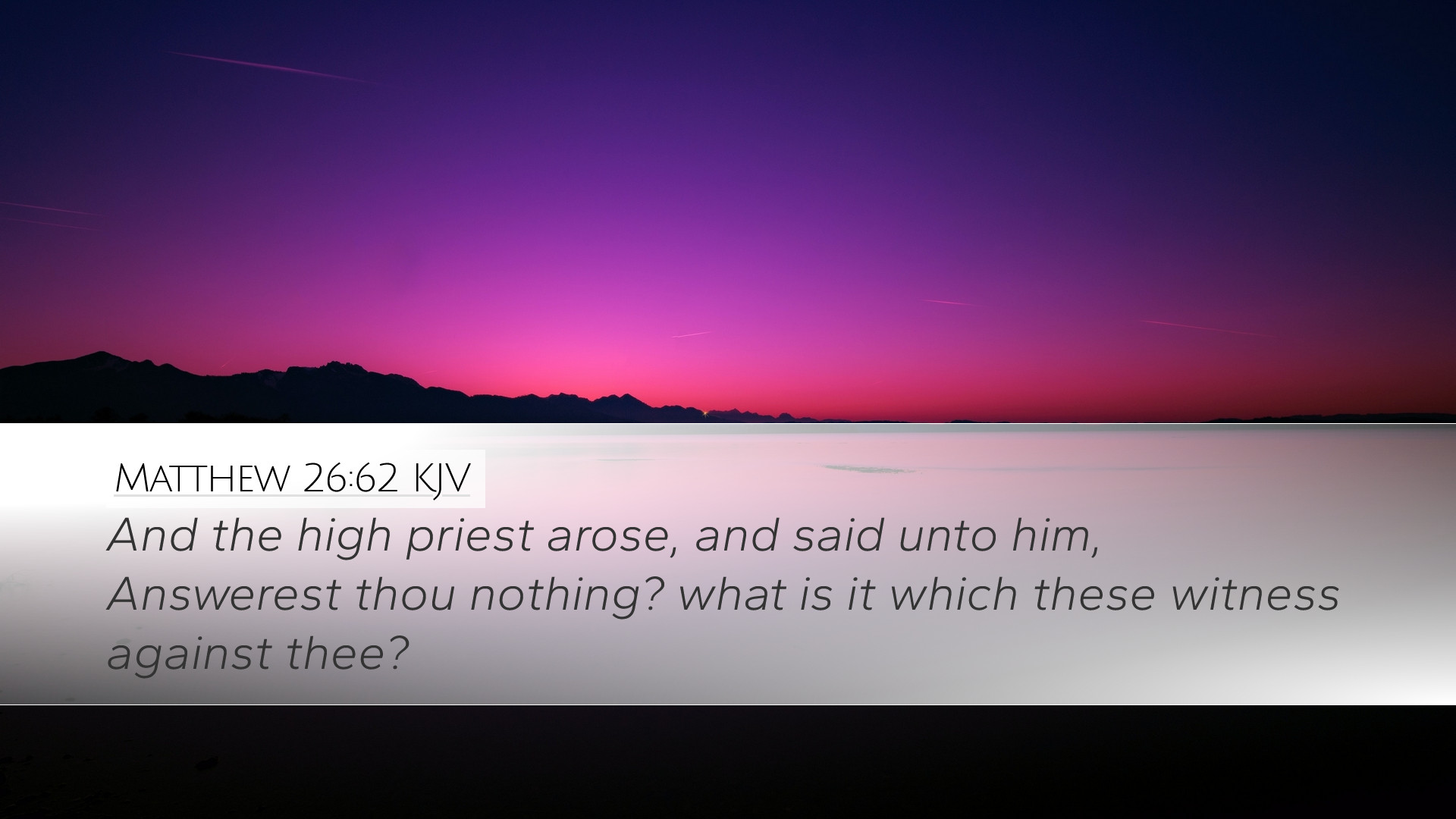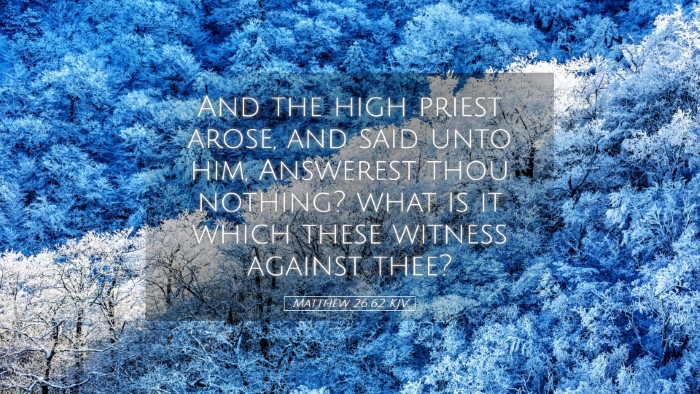Commentary on Matthew 26:62
Verse Context: Matthew 26:62 records a critical moment in the trial of Jesus, where the high priest, Caiaphas, challenges Him about the accusations against Him. This encounter lays bare the tensions between Jesus and the established religious authorities and ultimately sets the stage for His crucifixion.
Understanding the High Priest's Role
Albert Barnes notes the significant authority of the high priest in Jewish society. The high priest was not only a religious leader but also an influential figure politically. Caiaphas, as the high priest during Christ's trial, embodies the corrupt nature of the religious leaders of the time. This context highlights the tension between true divine authority represented by Jesus and the flawed authority of humanity.
Jesus’ Silence Before His Accusers
Matthew Henry emphasizes the notable silence of Jesus in response to the accusations during His trial. This silence is not one of weakness but of dignity and purpose. Jesus understands that the truths of His mission and identity cannot be adequately expressed amidst a perverse system of false accusations and injustice. His silence fulfills the prophecy of Isaiah regarding the suffering servant (Isaiah 53:7), thus showing His obedience to the divine plan of salvation.
The Nature of False Witness
Adam Clarke elaborates on the concept of false witness, which arises throughout this passage. In this context, the religious authorities attempt to create a narrative through deception. Clarke points out that the Old Testament laws regarding witnesses require two or three corroborating testimonies (Deuteronomy 19:15). The failure to achieve this in testimony against Jesus underscores the illegitimacy of the charges presented.
Spiritual Significance of the Trial
This trial before Caiaphas serves as a pivotal moment both for historical understanding and spiritual reflection. Matthew Henry states that this event reflects God’s sovereignty and justice. The injustices faced by Jesus serve as a profound reminder of God’s understanding of human suffering. His willingness to endure false testimony and humiliation for the sake of humanity's redemption reveals the depth of divine love.
The Importance of Speaking the Truth
Albert Barnes stresses that despite the false witnesses around Him, Jesus embodies the ultimate truth. His identity as the Messiah is not dependent on human testimony but is rooted in His divine nature and mission. For pastors and theologians, this can serve as a powerful reminder to pursue truth amidst societal challenges. In a world filled with misinformation and deception, Christians are called to uphold the truth of the Gospel.
Application for Believers
In reflecting on Matthew 26:62, the challenges Jesus faced are parallel to the trials believers might endure in their commitment to Christ. Matthew Henry encourages believers to find strength in Christ’s example. The silent suffering of Jesus speaks to the believer's call to endure hardship with grace and assurance of God’s ultimate plan.
Key Applications:
- Embrace Truth: Believers are called to walk in truth, following the example of Jesus, who embodies the very essence of truth amidst falsehood.
- Endure Injustice: Just as Jesus faced injustice without retaliation, believers are encouraged to respond to their trials with patience and grace.
- Trust in God's Sovereignty: In every circumstance, Christians can rely on God's overarching control, even in the midst of circumstances that seem unfair or chaotic.
Conclusion
Matthew 26:62 is not merely a historical account of a moment in Jesus' life; it serves as a profound theological reflection on truth, justice, and divine purpose. Through a synthesis of insights from Matthew Henry, Albert Barnes, and Adam Clarke, it becomes evident that believers are called to uphold the truth, endure trials with a spirit of humility, and trust in God's plan. This passage invites ongoing reflection and offers deep encouragement for those facing persecution, reminding them of the supreme justice and love displayed in Christ.


